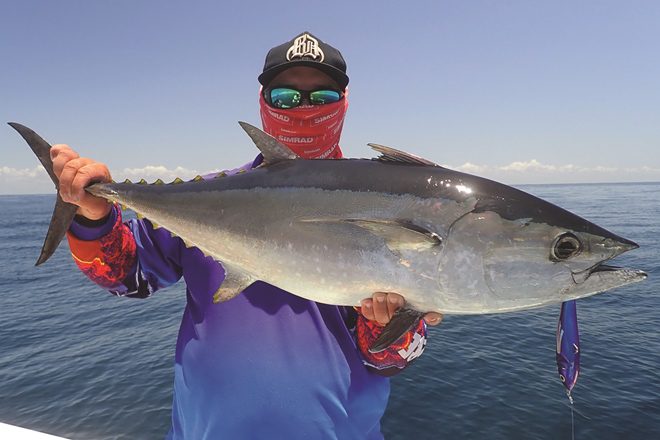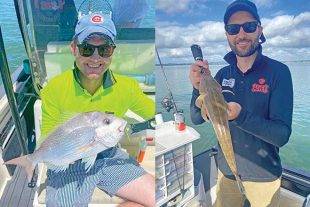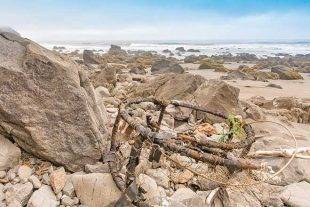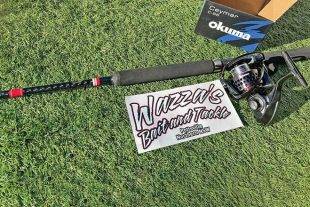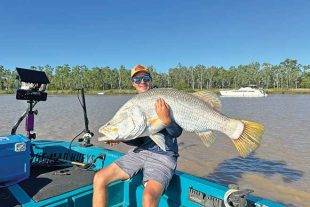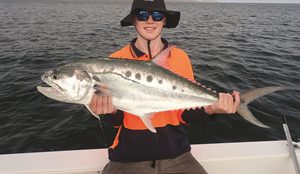
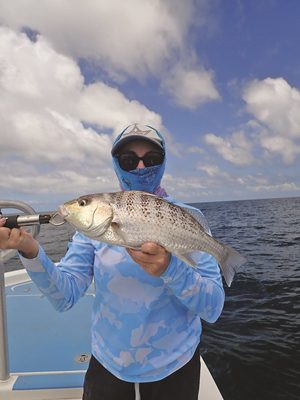
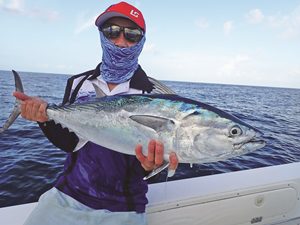
IT has been a wild couple months of weather.
So much rain, so much humidity… it was a ‘real’ summer. I can’t remember the last summer with prolonged humidity – I have even considered buying an air-conditioner. I wish the fishing was just as hot!
It has been patchy and at times tough. Particularly when dodging massive rain squalls that at times cover half the zone I would usually tour. In this weather you can’t see anything, so spotting tuna is impossible, not to mention comfort on an open vessel reduces to zero. But with serious heat on still days, some occasional light drizzle was a godsend.
In recent articles I mentioned fishing for school mackerel, and luckily they have responded to my calls, putting bends in the fishing poles and fillets on the table. The tried and tested fishing technique to catch them is quite simple but very effective. I find them not overly fussy, but higher-speed retrieves tend to trick them most days. Spinning metals for mackerel is by far the best method.
Metals sink fast, which is great for a fish that tends to hold deep near bait and structure rather than surface feed. The key is to spin just the area the fish are marking in. Do not waste energy by spinning the lure the entire height or length of the water column.
If you are in 10m and the fish mark only in the bottom three, then I recommend you spin the bottom half before dropping back to the bottom. Adding rod tip twitches and jigs to this well tested fishing technique can help and even outfish the fast retrieve, but doing so will also increase the chance of bite-offs.
Drift only areas with shows of fish. No fish, no drift – don’t waste your time and energy. Spinning fast is hot work. If mackerel are in the area, they will usually show themselves quickly, so be smart and move swiftly if required.
Other species will also eat metal lures spun fast. Don’t be surprised when a tuna, queenfish or trevally latches on. All species will also hit a metal lure on the drop, so be mindful of that.
A couple of other pointers: let the lure drag out behind the drifting vessel because it slightly increases the length of your retrieve, particularly if you are fishing in less than 15m of water.
If you get a tap that doesn’t connect, let the lure fall back immediately. Use single hooks because they are better at penetrating for secure hook sets. If larger fish show up, you can also use jigs and twitches to tease them into a strike.
I have been employing metal lures more regularly when the tuna have been a bit thin. I prefer plastics for tuna. They haven’t been tough to hook, just not always easy to find. Tuna have eaten the metals, especially when skipped across the surface. So just remember: one lure can do many things.
In one tour we can be putting fillets on the table, then suddenly come tight with a tuna or queenfish to entertain us. If the queenfish come up and stay on the surface, you can spin that same lure across the surface school. This might trigger explosive slashing strikes that may not always connect, but definitely add a bit of spice to a regular day of school mackerel fishing.
And if a school of trevally shows up down deep, just jerk and twitch the old metal slug through the school if the fast spinning doesn’t come up trumps. And see that cluster of bait and indescribable mess on the bottom? A nannygai or trout might be in there.
You don’t have to pick up a different rod and lure – you would be surprised how effective and versatile these old tried and tested fishing techniques are when driven the right way. If you look back through older editions of BNB Fishing (available on Issuu for free), I discuss the techniques in depth.
It is great to see the young folk comment on my social media and say: “Is that a slug!?” You can almost hear their skin crawling.
I just respond with “#oldskool”.
 Bush 'n Beach Fishing Magazine Location reports & tips for fishing, boating, camping, kayaking, 4WDing in Queensland and Northern NSW
Bush 'n Beach Fishing Magazine Location reports & tips for fishing, boating, camping, kayaking, 4WDing in Queensland and Northern NSW

